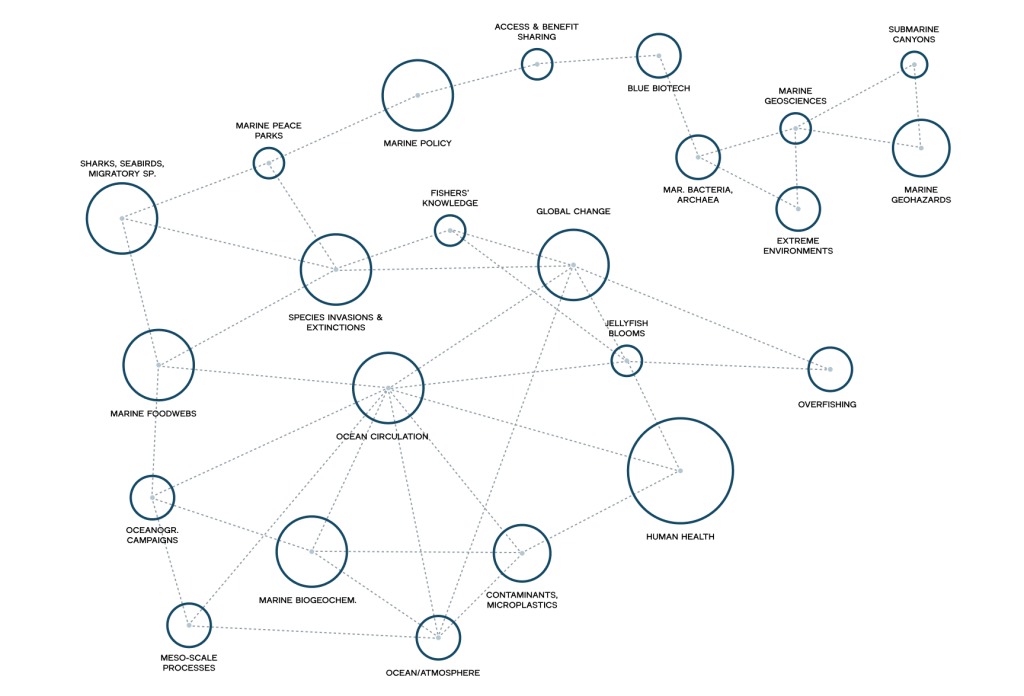The Commission, with headquarters in Monaco, has expanded from the original 8 founding countries to encompass 23 Member States today. These support a network of thousands of marine researchers using cutting-edge scientific tools to better understand, monitor and protect a fast-changing, heavily impacted Mediterranean Sea.
Organized in six scientific committees and various taskforces, CIESM spans a wide range of marine disciplines from geophysical, chemical and biological processes to high-resolution sea-bottom mapping.
The official logo of CIESM above represents the starfish Hacelia attenuate, commonly known as the “smooth starfish.” Widespread throughout the Mediterranean and the nearby Atlantic province (up to the Azores), it thrives on rocky and coralligenous seabeds at depths between 3 and 150 meters (mainly between 20 and 50 meters). Averaging 20 centimeters in size, it displays an orange or scarlet-red coloration.
The illustration of Hacelia attenuata is reproduced from a plate created at the beginning of the century for a work dedicated to the oceanographic campaigns of H.S.H. Prince Albert I, aboard the yacht Princesse Alice. During the 1897 campaign, several individuals of this species were collected at a depth of 98 meters. Learn more about the biology and distribution of Hacelia attenuata here (descriptive sheet published in 1929).
OUR MISSION
Founded in the early 20th century, the Commission was established to promote international research across the Mediterranean and Black Seas.
In service to science, the Commission organizes international research workshops, collaborative programs and regular congresses, delivering expert and independent advice to national and international agencies on a large number of emerging issues.
In service to society, the Commission continuously monitors crucial indicators of environmental change. This includes tracking warming trends in deep waters, the invasion of tropical species, and the alarming decline of shark populations and seabirds.
CIESM actively involves researchers from all shores of the Basin in its actions, continuing a century-long tradition that not only encourages the sharing of scientific standards and ideas but also promotes ongoing, peaceful dialogue among communities historically divided by conflicts.
The Mediterranean Sea is experiencing rapid and unprecedented changes. CIESM diligently monitors and analyses these trends across the entire Basin – from the impact of global warming on sea level and water masses to changes in marine biodiversity; from coastal morphological changes to the accumulation of trace metals in marine food chains.

